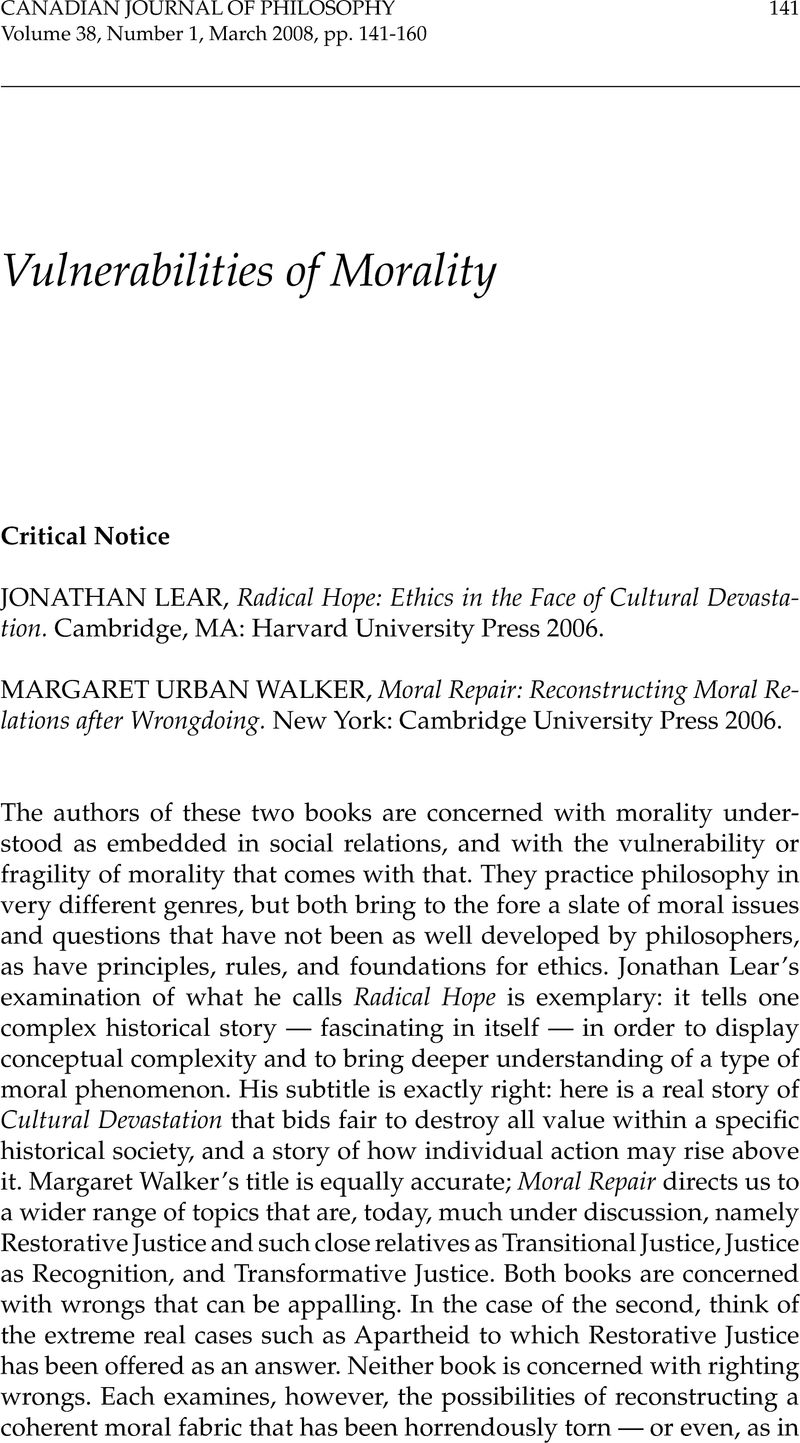Published online by Cambridge University Press: 01 January 2020

1 The story: The Crow were a nomadic, hunting, warrior tribe. In terms of Crow life everything counted as hunting or fighting or preparing for it. Even cooking a meal had significance insofar as it was a way to prepare for hunting or fighting. The particular excellence of Crow culture was courage, its heroic exploits understood in terms of ‘coups.’ The robust culture recognized a number of ways an individual could count coups, but we can best understand why the Crow had this form of the excellence in Lear's account of the ‘coup stick.’ This was a stake a warrior planted in the ground, as sign to his foe of a boundary the Crow would defend to the death. The Crow needed to protect a claim to animals within their (shifting) boundaries. The tribe was once formidable but by the 1850s was surrounded by rival groups, particularly endangered by the Sioux, weakened by smallpox and cholera, and pressured by an inexorable white advance. The Crow decided to ally with the US government in common battle against the Sioux. Lear admits that the most familiar forms of practical reasoning are still possible. An individual could still aim at what is useful, finding food or shelter, and what might be pleasures available on the reservation, even whether it would be proper to send children to white man's schools. But the scope and resources of practical reason were radically limited insofar as there was no livable conception of the good life-which had consisted in hunting, fighting, and their preparatory activities.
2 Lear says ‘false’ optimism. I take him to mean an optimistic attitude, which would not have accurately reflected reality.
3 Walker, in her exploration of hope, finds all hope to be good. She does not distinguish legitimate/illegitimate hope but only hope from wishful thinking.
4 Donna Andrew, in conversation.
5 A further qualification: the problem formulated in Radical Hope is how it is possible to respond courageously in a time when the traditional concept of courage makes no sense, and a new concept has yet to be formed. He is interested in the psychological formations that make that possible. His answers do not preclude finding individuals who seem to ‘shed their skin,’ jump into another culture, with its different values
6 What has she endured, what kind of rupture in world and understandings of the victim. A commission in his play was charged to investigate and document only the cases of victims who were killed or are presumed dead. Real surviving victims of torture could not testify.
7 Joseph Butler, Fifteen Sermons, T.A. Roberts, ed. London: Society for Promoting Christian Knowledge 1970, 77
8 Walker cites 59-60 of Jeffrie Murphy and Jean Hampton, Forgiveness and Mercy. Cambridge: Cambridge University Press 1988. ‘Resentment is an emotion whose object is the defiant reaffirmation of one's rank and value in the face of treatment calling them into question in one's own mind.’
9 Strawson, Freedom and Resentment, 75; cited by Walker, 123
Strawson introduced the idea of reactive attitudes, phenomena whose focus was a commonplace philosophers seem to have neglected-as he put it, how much we actually mind, how much it matters to us, whether the actions of other people — and particularly of some other people—reflect attitudes towards us of goodwill, affection, or esteem on the one hand or contempt, indifference, or malevolence on the other.
10 With Walker's qualification, that forgiving must have the aim of moral repair.